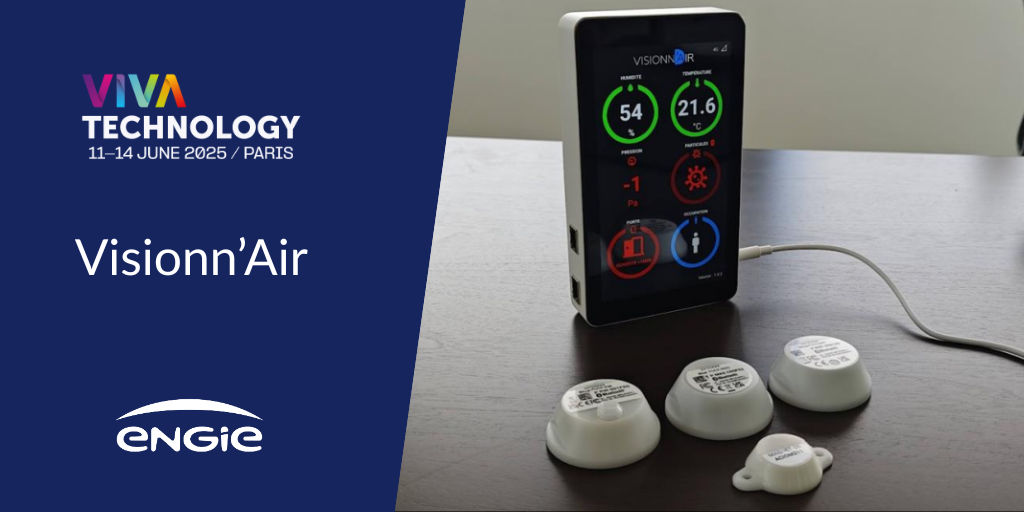

Visionn'air is a perfect example of co-development with a manufacturer (TERA Sensor) to meet specific customer needs.
The initial challenge was to optimize ventilation systems in hospital operating rooms and industrial clean rooms. These environments are subject to strict air quality standards, and maintaining those standards—temperature, humidity, overpressure, and filtration—requires substantial energy.
In operating theatres, regulations allow for a “reduced mode” when the room is not in use, which can significantly cut energy consumption. However, in France, 90% of operating theatres do not apply this mode, mainly due to the lack of reliable, continuous air quality monitoring systems.
To address this, we developed Visionn’air—a smart, autonomous system equipped with wireless sensors that monitor temperature, humidity, overpressure, presence detection, and door activity. Since 2025, Visionn’air has integrated a major technological advancement: a particulate sensor that continuously monitors air quality, a critical parameter for ensuring the integrity of air treatment processes. These sensors are connected to a data acquisition and processing unit, which communicates with the building’s control system to adjust ventilation in real time.
What makes this innovation particularly compelling is its cost-effectiveness. While traditional particle counters range from €5,000 to €15,000, the new sensors—originally developed by TERA Sensor for the automotive industry—cost around €2,000. We identified their potential and adapted them for building environments. Our first step was to validate their accuracy and robustness compared to reference systems.
Thanks to these sensors, we can now replace annual spot checks with continuous, reliable, and more economical monitoring. Visionn’air not only helps reduce energy consumption but also enhances safety through continuous air quality control. Moreover, the system is easy to deploy because it’s wireless and non-intrusive, avoiding major construction work and the mandatory room requalification that would normally be required for something as simple as drilling a hole!
Yes, Visionn’air has been commercially available since January 2025, and we are currently equipping three pilot sites.
We’ll be installing the sensors on our stand and offering live demonstrations, with real-time data displayed on a tablet. This will allow visitors to see how easy the system is to install and understand the value it brings to users.
We recently participated in SantExpo, which had a different audience. At VivaTech, we aim to demonstrate how ENGIE can integrate and scale innovations developed by its research centers to meet real-world customer needs.
It’s also a great opportunity for communication and outreach—we’ll be sharing updates on LinkedIn and engaging with potential clients from both the healthcare and industrial sectors.
Our next step is to scale up: market Visionn’air kits, expand our market share, and offer energy performance contracts that guarantee air quality.
At Cylergie, we often say that we work for the end customer through our intermediary, ENGIE Solutions. To develop relevant solutions, we need a deep understanding of our customers—their constraints, operations, and needs. All of our innovations, including Visionn’air, stem from real-world challenges. This project is a perfect example of co-development with a manufacturer (TERA Sensor) to meet specific customer needs.
Innovation often comes from the smart adaptation of existing technologies!
Visit the ENGIE stand (J39) at Porte de Versailles in Paris, from June 11 to 14, to explore Visionn’air and other cutting-edge solutions that position ENGIE as a leader in the energy transition.